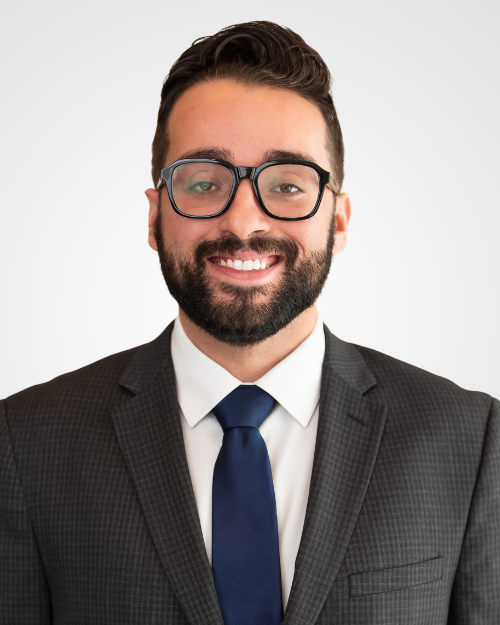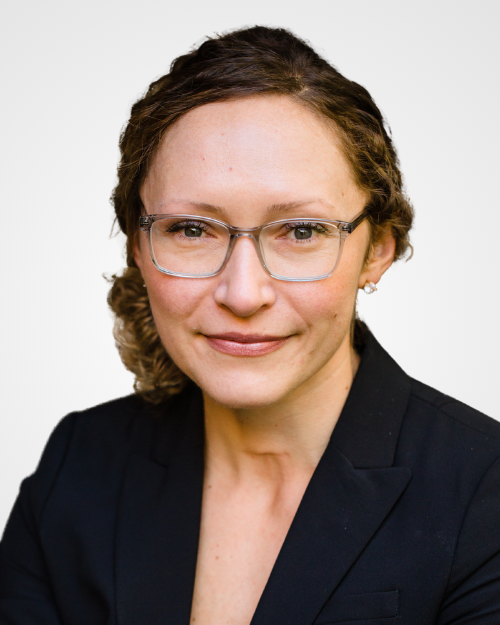A Firm Foundation: Strategies for Engaging with Grantmakers

Grantmaking institutions are an essential part of a nonprofit’s fundraising strategy and come in many shapes and sizes – from corporate and private foundations, community and regional foundations, to collectives and intermediaries. According to Giving USA, foundation and corporate donations comprised 25% of all philanthropic support in 2023, underscoring the vital role grantmaking entities play within the nonprofit landscape.
While engaging with grantmakers often requires more planning and preparation than individual donors, the cultivation and stewardship strategies share many similarities. The main challenges lie in identifying the best-aligned institutions and building trusting relationships with their staff.
CFA’s Principal Mid-Atlantic Johnny Burleson with over 20 years of nonprofit advancement experience, offers recommendations for successfully engaging grantmaking institutions. Joining him is CFA’s Senior Project Manager John Teknus, who brings insights from his previous role as a portfolio analyst with the Open Society Foundation (OSF).
Identifying Aligned Opportunities
While it can be easy to fall into a pattern of engagement with a core set of funders, proactive prospect research should be a regular priority of every development team. Using online tools such as Foundation Directory, Candid, Instrumental, or DonorSearch can expedite lead generation while supplemental research via funder websites can provide other vital insights as organizations narrow their list of grantmaking prospects.
John emphasizes, “Thorough research is crucial. Understanding a funder’s priorities and giving patterns can significantly increase your chances of securing support.”
While the expanding array of information available online can result in long lists of prospective funders, strategically prioritizing institutions that are a good fit is essential. By concentrating on funders whose missions and giving patterns align most closely with your organization’s programs, target audience, and geographic focus, your research and subsequent engagement efforts will have a much stronger return on investment.
As your top priority institutions are identified, assemble a list of their board, trustees, and key staff to aid in identifying any connections your organization might request an introduction from. More on that below!
Preparing to Approach Grantmakers
Before reaching out to a grantmaker, nonprofits should be equipped with key internal plans and documents to support the next stages of engagement. Often developed in close collaboration with an organization’s leadership, finance, and program staff, grant proposals typically require detailed organizational narratives and program plans, budgets and timelines, financial and annual reports, as well as lists of board members, leaders, and funders.
“Complex funders often require detailed documentation,” notes Johnny. “Having comprehensive, up-to-date organizational documents ready can streamline the application process and demonstrate professionalism.” John adds, ” Having these documents prepared and up to date will enhance your ability to strategically and meaningfully engage with these grantmaking institutions.”
Strategies for Cultivating Grantmakers
When it comes time to make an introduction, personal connections are conducive, but not always essential, for engaging with a new grantmaking entity. Johnny advises his clients to take a proactive approach in engaging with grantmakers outside of a solicitation request; a strategy that is particularly effective for individual donors as well.
John agrees, “Building relationships with grantmaking institutions is about more than just seeking funds. Engage them as partners in your mission, and you’ll often find they offer valuable insights and connections beyond financial support.”
Identifying advocates within your network with personal or professional connections to grantmakers can help to open doors that may otherwise remain closed. However, the lack of a connection should not hinder your organization from reaching out. A concisely articulated introduction of your organization outlining your alignment to the institution’s funding priorities as well as suggested next steps for engagement will increase the likelihood of continued conversation.
Requesting a meeting and seeking the targeted advice from their staff can provide invaluable insight while building a strong foundation for future support. As CFA recommends in a recent article on Donor Cultivation and Stewardship, strategic engagement with the staff at grantmaking institutions may look similar to approaches taken with individual donors: an invitation to an upcoming event, program tour, or personalized email update on targeted initiatives or strategic plan milestones.
However your organization seeks to engage with grantmakers, these critical relationships can yield a multifaceted return on investment by engaging their staff as top shareholders in your organization’s vision and strategic direction. In addition to consistent, long-term support, these critical stakeholders bring influence, connections, guidance, and insights that can further advance the work and mission of the organizations with whom they closely engage.
Best Practices for Stewarding Grantmakers
Strong relationships with grantmaking institutions enable a robust understanding of funding priorities and a clear line of sight to upcoming funding opportunities, better positioning your organization to submit compelling and well-aligned grant proposals and increasing the likelihood of an award. Similar to individual donors, the relationship with a grantmaking institution is far from over once a grant is approved; it has really just begun.
“Effective stewardship is key to long-term partnerships,” John explains. “Regular, tailored communication that goes beyond formal reporting can help maintain and strengthen these crucial relationships.”
While many grantmaking entities will provide detailed reporting guidelines and preferences for recognition, these milestones offer the opportunity to strengthen the relationship while maximizing the investment through added expertise and connections. For example, a conversation with the grantmaker may uncover ways to bring their staff closer to the programs they are investing in to offer advice and guidance, while unique public relations and recognition ideas may offer exposure for both the funder and grantee. With a trusting relationship established, existing funders are also oftentimes able to recommend and provide leads to other grantmakers.
As your organization establishes relationships with key grantmaking personnel, creating a segmented communication strategy will enable more relevant and tailored communications through the stages of cultivation as well as stewardship. Johnny advises his clients to create stewardship plans that align to the size of the grant and distinct preferences of the funder. Building from a complementary set of communication strategies for individual donors, informational progress updates and organizational announcements in addition to personal outreach can serve as complementary strategies to strengthen the relationship.
Whether or not your organization has a history of securing significant investments from grantmaking institutions, Johnny recommends that organizations continue to proactively identify and establish relationships with new funding prospects. Seeking advice, testing ideas, and inviting funders to engage more closely will expand your pipeline, allowing your organization to remain nimble as funding levels or priorities shift while opening doors for future support.
Partner With Us
CFA’s consulting team is highly experienced in supporting all aspects of our clients’ fundraising strategy, including cultivation and stewarding institutional grantmakers. If you are interested in exploring how CFA can enhance your organization’s strategy and pipeline of grantmakers, contact CFA today.
Johnny Burleson, Principal, Mid-Atlantic
Johnny comes to CFA with over 20 years of nonprofit advancement experience in the arts and cultural, educational, and human services sectors. His proven track record of high-trust, high-performance leadership spans multiple areas of expertise, including campaign planning, major gifts, corporate and foundation relations, and government relations.
As Principal, Mid-Atlantic, Johnny oversees projects spanning CFA’s suite of fundraising counsel services. Johnny believes in aligning donors’ passions with innovative ideas, emphasizing the importance of promoting philanthropy through coalition-building and partnerships to achieve the greatest impact.
Prior to joining CFA, Johnny served as Chief Advancement Officer for North Carolina Museum of Art in Raleigh, where he successfully restructured development and membership operations and transitioned the organization from a transactional approach to an institution-wide culture of philanthropy. Johnny also oversaw the planning of the largest fundraising campaign in the museum’s history.
Prior to his role at NCMA, Johnny held the position of Director of Strategic Partnerships with the Blue Cross and Blue Shield of North Carolina Foundation, playing a pivotal role in building and stewarding local, state, and national relationships to bring philanthropic and federal resources to North Carolina in support of stronger, healthier communities. Johnny’s extensive career also includes 17 years in higher education philanthropy and advancement. He began at his alma mater, North Carolina State University, where he received a BS in Textiles with a focus on the Italian textile industry. Additionally, he held leadership positions at Appalachian State University and the University of North Carolina School of Government in Chapel Hill.
Johnny has volunteered as board member for several North Carolina nonprofits, including Preservation North Carolina, Triangle Land Conservancy, Lost Province Center for the Cultural Arts, Ashe County Chamber of Commerce, and Ashe County Arts Council. Outside of work, Johnny can be found on Old Orchard Creek, his blueberry farm located in Ashe County, NC. His farm is on the National Historic Register and is also protected by a conservation easement, reflecting his personal passion for the mountains, the arts, historic preservation, water, land, trails, local food, and sustainable agriculture.
John Teknus, Senior Project Manager
As Senior Project Manager at CFA, John is tasked with the design and implementation of organizational and information management tools and strategies to deliver best-in-class service for CFA’s team and clients.
John brings a nuanced understanding of project management that draws on his extensive background in strategic planning, grant management, and partnership development. Leveraging past experience and a deep-seated passion for relationship building, John aims to create bespoke strategies that align with the unique needs of CFA’s partners.
John has a diverse range of experience, including his time at Youth Enrichment Services and St. John’s University. As a Prevention Specialist at Youth Enrichment Services, John effectively communicated with local officials and community members, addressing issues impacting students and schools. During his tenure as a Community Partnerships Associate at St. John’s University, he successfully directed the operations of social service centers across the New York metro area while managing a cohort of dedicated undergraduate students. These experiences honed his leadership skills, community engagement expertise, and ability to navigate complex organizational environments.
Most recently, John served as a Portfolio Analyst at Open Society Foundations, where he played a pivotal role in managing grants across five portfolios in the Economic Justice Program. John excelled in building relationships with external stakeholders, internal colleagues, and organizational officials, fostering collaboration and facilitating effective communication. Furthermore, his due diligence interviews and audits on organizations provided valuable insights for decision-making processes, contributing to informed and strategic grantmaking. Through his exceptional skills in project management and stakeholder engagement, John made a significant impact on his team’s strategic goals to promote economic justice and social change.
A native of Long Island, New York, John holds a MA in International Relations and Comparative Politics from St. John’s University and a BA in Political Science from Canisius College. When he’s not working, he can be found exploring the New York area with his partner, Nora.
Kendall Carlson, Content Writer
A frequent contributor to CFA’s digital content, Kendall Carlson has spent her career advancing nonprofit organizations across the Twin Cities. With 16 years of experience, Kendall brings a balance of strategic and operational leadership spanning fundraising, program development, evaluation, and strategic planning.
Most recently, Kendall served as Development and Communications Director at Hired, where she diversified revenue for the organization’s $11M budget and increased individual giving by 60%, led a rebrand, and launched an organization-wide data for impact initiative. Prior to Hired, Kendall served at Greater Twin Cities United Way, where she led an advancement strategy team to increase investment and engagement from the organization’s top corporate and major donors. Kendall is known as a strategic, solution-oriented leader with a high capacity for detail and commitment to quality. She launched her consulting practice, Luminate Consulting, in 2022 to bring her skills in fundraising and program strategy to nonprofits seeking sustainable growth.



